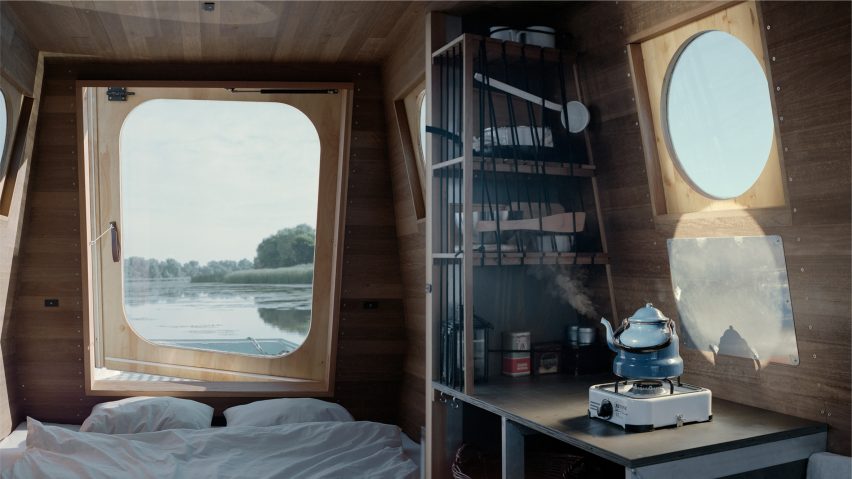
Tamás Bene creates Hungarian houseboat to be "in harmony with its surroundings"
Hungarian architect Tamás Bene has designed a houseboat, which was informed by local fishing boats, as a holiday home on Lake Tisza for a young couple from Budapest.
Called Sneci, the floating summer home was designed specifically for its home on Lake Tisza – a 7,000-hectare artificial reservoir and nature reserve that is home to a menagerie of wildlife including more than 100 different bird species.
Drawing on the vernacular of local fishing boats, the vessel's entire structure and cladding is made of aluminium, save for the roof, decking and rear wall, which are finished in heat-treated thermowood.
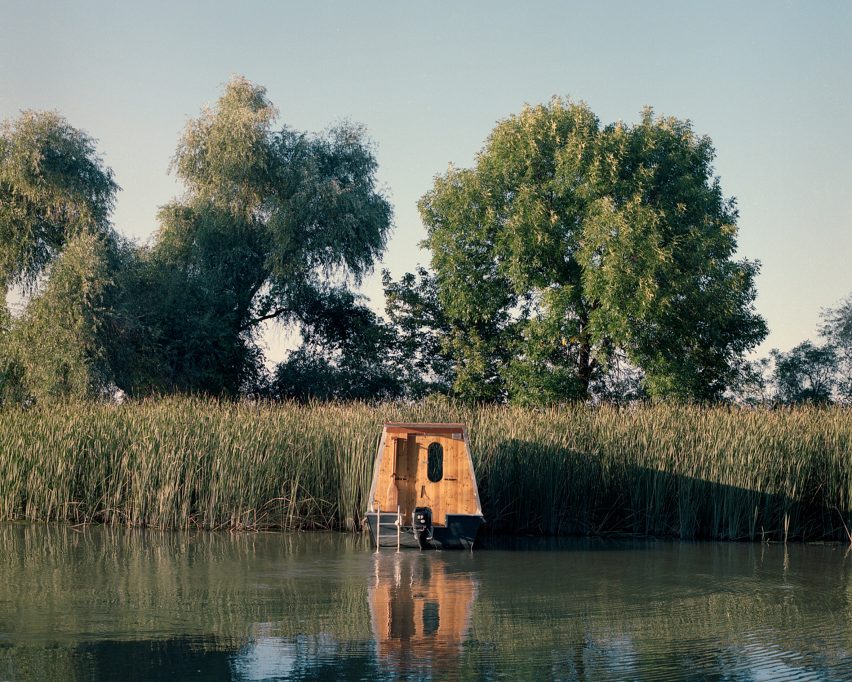
"Fishing boats have no particular designer – each owner develops their boat according to their own ideas and needs," Bene told Dezeen.
"Even though there is no underlying artistic concept, these objects have a rather scenic, bucolic character. I tried to relate to this by articulating only small, understated gestures in the boat's styling," he continued.
"In feedback from local fishermen and -women, there is no reflection about the object's design, they only express that it has a 'good ambience'. This is a good sign, I think, showing that we managed to create an unimposing object that fits in with the natural environment and is in harmony with its surroundings."
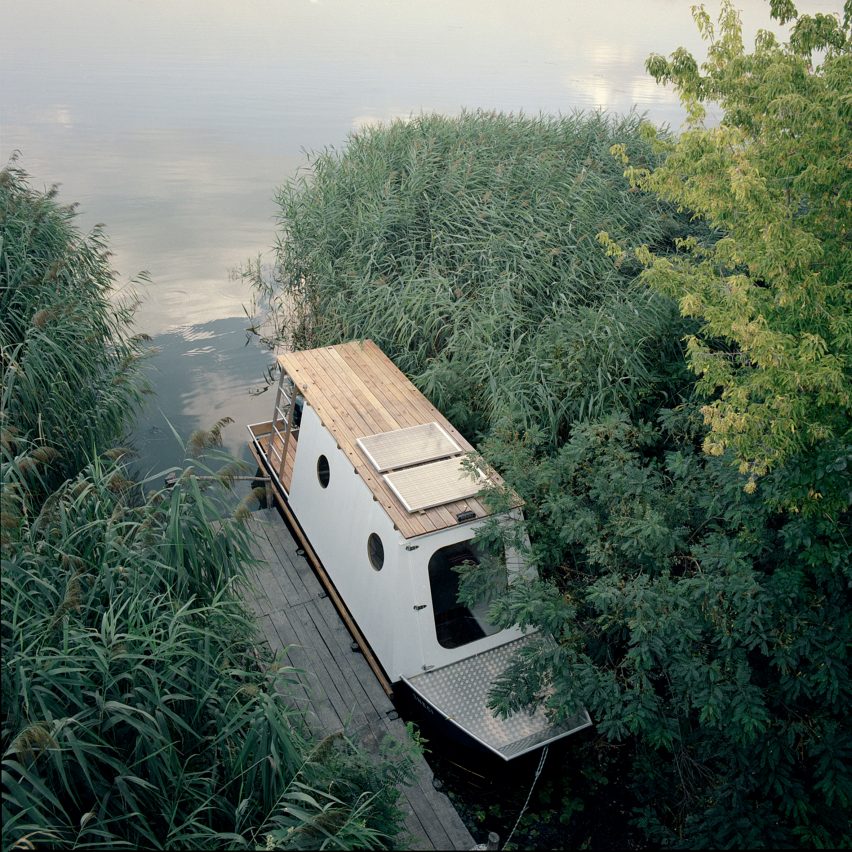
In order to allow as much nature to spill into the interior as possible, a large panoramic window graces the bow of the vessel while sliding doors create a seamless transition onto the rear deck.
The interior, which is panneled almost entirely in a mixture of redwood and thermowood, has a small kitchen and dining setup with two benches and a table.
At night, the tabletop can be lowered to the height of the benches and unfolded to create a double bed, with the cushions doubling up as a mattress.
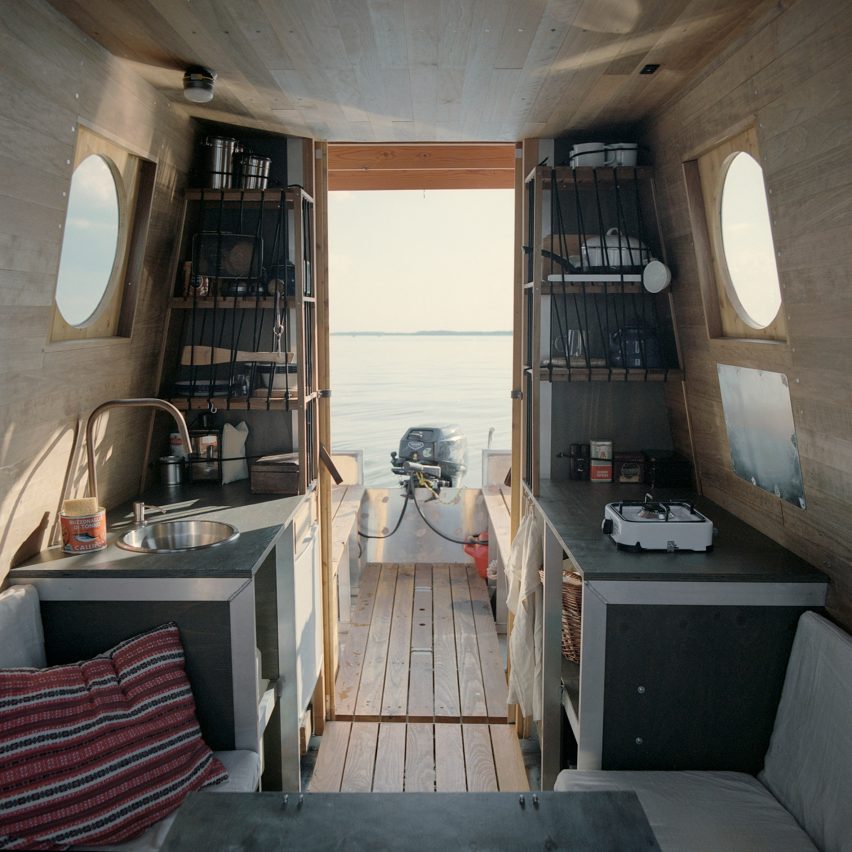
Bene's hope was create a humble, purposeful space that doesn't distract from what lies outside of the porthole windows.
"Each and every object on the boat has its own dedicated place, minimising the chance of clutter and crowdedness," he said.
Two solar panels on the roof power the boat's electrical equipment, including the front and rear headlights, interior lighting and a small fridge, with enough energy spare to be stored in a 180 amp hour battery.
"Drinking water comes from a 20-litre bottle and can be delivered to the tap with a foot-operated pump, so no electricity is required," added Bene.
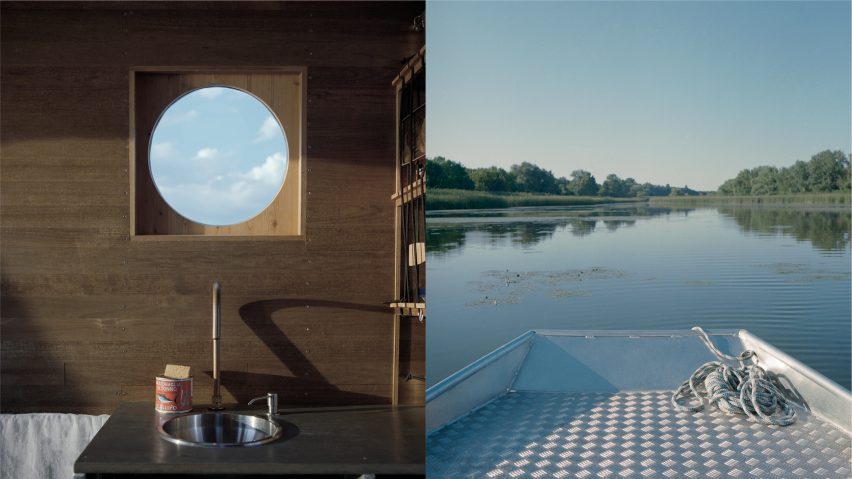
The boat itself is propelled forward by a relatively small, 9.9 horsepower internal combustion engine, which allows the owners to navigate Lake Tisza's shallow, winding channels.
Beyond his work as an architect, Bene also dabbles in design and lectures at his alma mater, Budapest's Moholy-Nagy University of Art and Design.
London firm Baca Architects has previously designed a modular houseboat as a possible solution to the capital's housing crisis while goCstudio floated an entire plywood sauna on a Seattle's Lake Union.
Photography is by Balázs Máté.